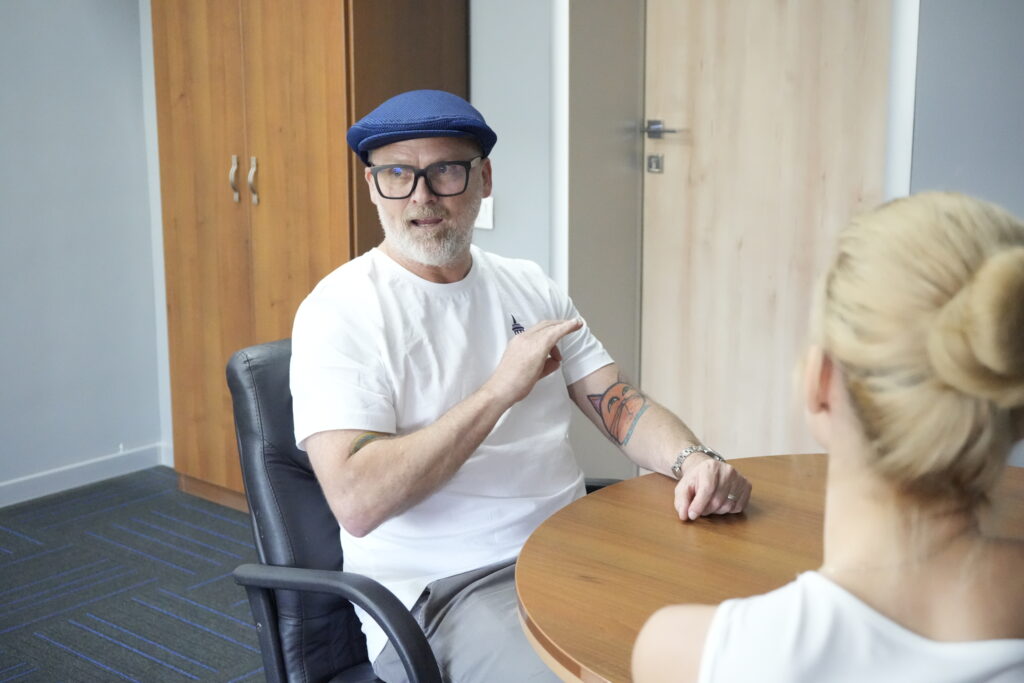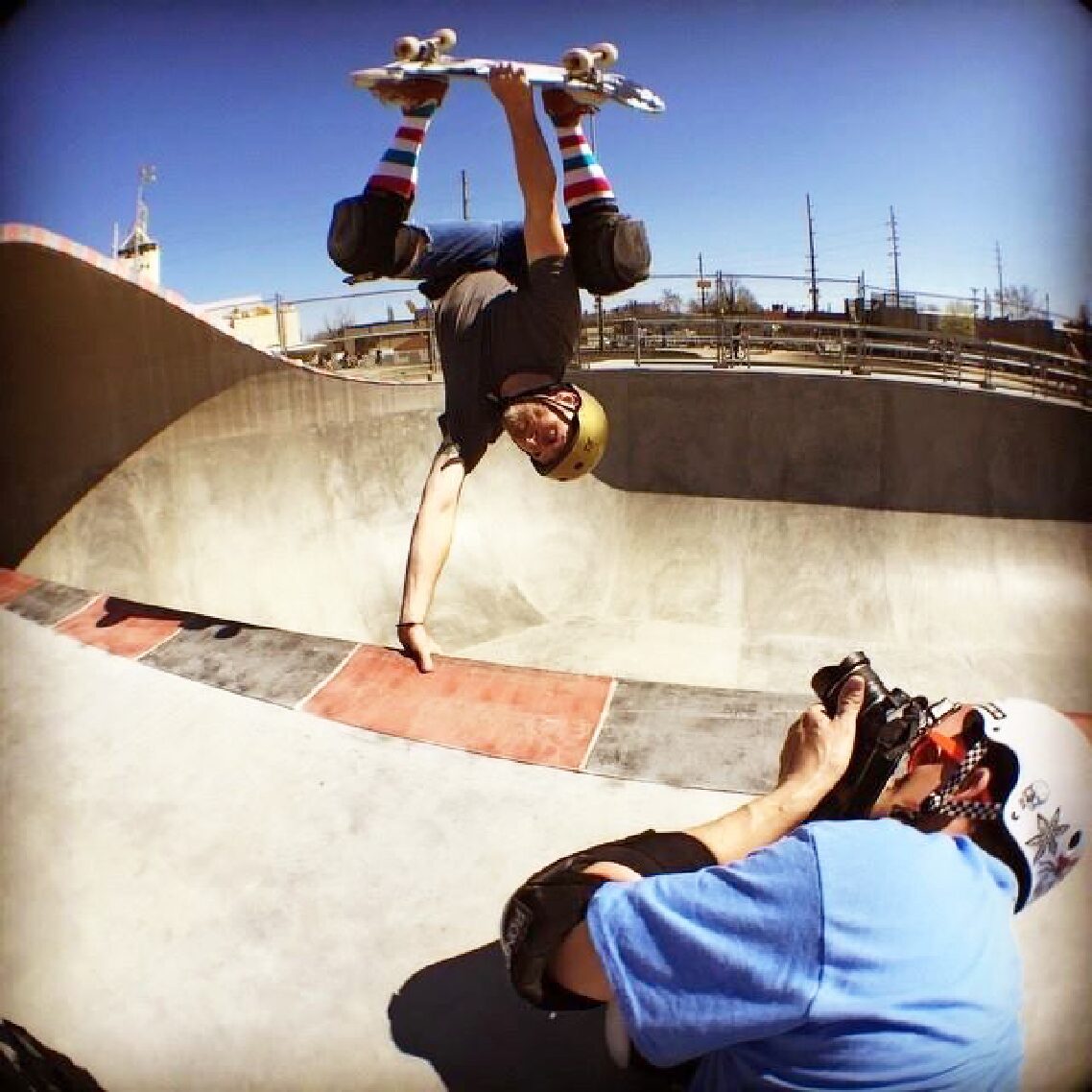In Fall 2025, Professor Jason Gainous joined KIMEP University as Dean of the College of Social Sciences. KIMEP Voice asked him about his academic background, impressions of Kazakhstan, and plans for collaboration and innovation.
Q: Where are you from originally?
A: I am from the United States originally. Florida, the Sunshine State, with its hot, tropical weather.
Q: And did you ever think that you would be living in Kazakhstan?
A: No, not when I was young. When I first heard of Kazakhstan, I had to look at a map to locate it, which is ridiculous since it’s the ninth-largest country in the world, yet sparsely populated. I never thought I would come here. My first visit was in 2014 for a visiting professorship at Eurasian National University, training faculty and graduate students in research. I fell in love with Kazakhstan, especially Almaty, which I found much better than Astana with its weather, mountains, and city life. I love it.
Q: What do you think now about Almaty and Kazakhstan in general?
A: I would say it is a hidden gem, an amazing place the world doesn’t know much about. If they did, there would be far more tourism. I’ve been to many cities, and this one is great — diverse, with food and shopping options, friendly people, nature, and mountains nearby. I love it. I’ve lived in the UAE and China, but I would take Almaty over Dubai any day. It’s simply a much better place.
Q: How did you move here? Is it related somehow to your career?
A: I came 11 years ago because I knew a faculty member connected to Kazakhstan. He arranged for me to come for one semester, and during that time, I began research on digital media consumption among Kazakhstani youth and how it shaped attitudes toward politics and protest. From then on, I studied Kazakhstan and Central Asia, publishing several articles on social media effects in the region. On that first visit, I became close friends with Amanzhol Bekmagambetov, now a professor here. He later came to the US, studied under me, and became part of our family before returning to Kazakhstan for his job here. After years of teaching and research, I realized I wanted to return to administration. I loved this place, so when the opportunity came, I applied, I got the job, and now I am here.
Q: Regarding research, what is your academic background, and how is it related?
A: I studied Political Science as an undergraduate, then earned a Master’s degree and a PhD from the University of Florida. I started studying political behavior and attitudes, the psychological processes behind why people think and act as they do. While doing that, I became interested in digital information flows and how they shape behavior. In the early 2000s, this was novel, and some political scientists thought I was crazy, but I got in early, built a reputation, published books with Oxford University Press, and gained global attention. Now I edit the Journal of Information Technology and Politics, the leading journal in this field. I love research, asking questions, and finding answers. I became a data scientist studying web scraping, surveys, experiments, and large language models — long before ChatGPT. As Dean, I want to reshape the College of Social Sciences by integrating computational science and AI into the framework of social sciences. Graduates will not only understand economic, political, communication, and public administration theories, but also apply them through computational methods and use AI ethically. That is how my research connects to shaping the college.
Q: Do you have any ideas for collaborations between CSS and SCSM?
A: [We are] already working on it. One of the first things we may try is developing dual programs and cross-listing foundational classes that all social scientists could take. I think the future of the employment sector is that social scientists are well-positioned to take advantage of AI. Social sciences teach critical thinking, how organizations fit into larger structures, and how interpersonal relations shape efficiency, equity, and justice. Because of AI and the STEM push, it’s easier for people to gain basic technical skills and combine them with social science. So if I’m hiring, I’d prefer someone who is a trained critical thinker with computational skills, rather than only business or computer science training. That person can contribute more and help the organization grow. To make this possible, we will partner with the School of Computer Science and Mathematics. Our students will gain computational foundations, while their students can benefit from our critical thinking perspective. The job market will soon only have space for top-level programmers, since basic coding tasks can already be done with tools like ChatGPT. Most organizations need not full programmers, but people who can manage data and apply social science insights.
Q: What about your personality? You said that you’re a data scientist. Does this mean that you’re especially into programming?
A: Yeah, I am. My programming languages are for statistical analysis. I use R and Python. I do a lot of that, which most people don’t think of when they think of a social scientist, but at the high level, especially among political scientists, that’s where it is. But my personality, aside from being an academic and scholar, I am a lifelong skateboarder and punk rocker. You can see the tattoos. I’ve broken many bones, had surgeries, and I ride. I’m super progressive, open-minded, see the world through a wide lens, always ready to understand things in unique ways outside social and cultural norms. Even in the United States, where people are seen as loud and open-minded, I’m still on the fringes. Definitely within academia, too. There aren’t many Deans who can ride a big vert ramp or do aerials, though, as I age, it’s harder. I see the world through a different lens, and I think of universities as my temple. This is a place where ideas flow, dreams are created, and people expand and share ideas. That collective thinking can light up a place so it’s palpable. I want to help KIMEP grow that.

Q: What can you tell us about your family? We saw your daughters — do they enjoy living here?
A: Yeah, one more than the other. I won’t say which, but that’s just her — put her anywhere and she’ll find something wrong, even in Paris. But overall, I think they love it. It’s hard not to. My wife also loves it. For us, it’s a great place with so many restaurants, shops, and things to enjoy. It really feels like a good home for our family.

